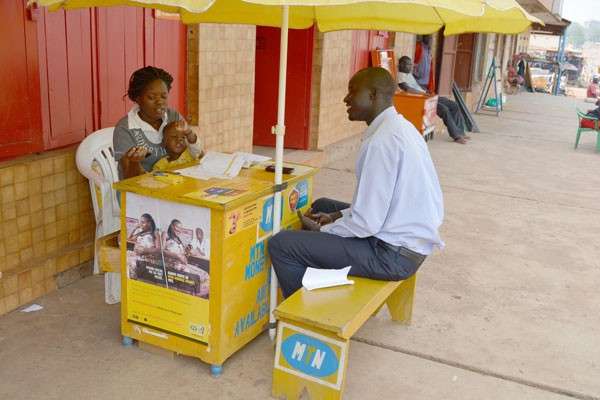The terrain of financial technology (FinTech) in Ghana continues to evolve, with mobile money emerging as a cornerstone of the country’s digital economy. According to the 2023 FinTech Sector Report by the Bank of Ghana (BoG), the float balance in mobile money transactions reached an impressive GHS 18.3 billion by the end of December 2023.
This figure represents a substantial increase of 40% compared to the GHS 13 billion recorded at the close of December 2022, signaling robust growth in the mobile money sector.
Float balance, a critical metric in mobile money operations, encompasses the total balance of electronic money on mobile money platforms. The significant rise in float balance reflects the growing adoption and utilization of mobile money services among Ghanaians.
Moreover, the report highlights a surge in mobile money transaction volume, with a total of GHS 6.8 billion transactions recorded in 2023. This represents a notable 35% increase compared to the previous year, underlining the expanding role of mobile money in facilitating financial transactions across the country.
In addition to transaction volume, the value of transactions conducted on mobile money platforms witnessed substantial growth, soaring by 79% to reach GHS 1.9 trillion by the end of 2023. This sharp uptick from the GHS 1.7 trillion recorded in 2022 underscores the growing importance of mobile money as a vehicle for financial inclusion and economic empowerment in Ghana.
Recognizing the pivotal role of FinTech in driving Ghana’s digital transformation agenda, the government has announced plans to establish a FinTech Innovation Fund aimed at supporting startups in the sector. This initiative seeks to provide the necessary investment and resources to nurture the growth of local FinTech companies and accelerate Ghana’s digital revolution.
The proposed FinTech Innovation Fund aligns with the government’s broader vision to leverage technology and innovation to enhance financial inclusion and drive economic development. By fostering an enabling environment for FinTech startups to thrive, Ghana aims to harness the transformative potential of digital finance to empower individuals, businesses, and communities across the country.
Government’s Intention to Establish FinTech and Innovation Fund
Moreover, the government’s intention to establish a FinTech and Innovation Fund highlights its commitment to fostering a conducive environment for innovation and entrepreneurship in the digital space.
By providing targeted support to FinTech startups, the fund aims to catalyze innovation, spur job creation, and stimulate economic growth. Through strategic investments in cutting-edge technologies and emerging business models, Ghana seeks to position itself as a regional hub for FinTech innovation, attracting talent and investment while unlocking new opportunities for inclusive development.
Mobile money in Africa was spearheaded by Kenya’s M-Pesa in 2007. Ghana’s MTN MoMo followed in 2009. Mobile money is a pay-as-you-go digital medium of exchange and store of value using mobile money accounts and a mobile phone.
Over the last ten years, mobile money has gone beyond sending and receiving money to several other services including accessing microcredit. Mobile money accounts are now seamlessly linked to bank accounts.
Even though Mobile Money has brought a convenient way of sending and receiving money, Mobile Money in Ghana isn’t all good news as customers are paying a hefty price. Financial inclusion has opened new frontiers of exploitation. This is particularly true for poor and working class Ghanaians.
The recent Introduction of the electronic Levy (E-levy) on Mobile Money against the cries and wailings of Ghanaians is a testament to the assertion that authorities are taking advantage of the FinTech industry to double tax.
Albeit, the findings of the 2023 FinTech Sector Report underscored the remarkable growth and resilience of the mobile money ecosystem in Ghana. With float balances surging, transaction volumes rising, and the value of transactions reaching new heights, mobile money continues to play a central role in shaping the country’s digital economy.
As Ghana charts a path towards greater financial inclusion and technological innovation, initiatives like the proposed FinTech Innovation Fund are poised to fuel further advancements in the vibrant FinTech landscape, driving sustainable growth and prosperity for all.
All in all, while celebrating the significant achievements and promising trajectory of Ghana’s mobile money sector, it is essential for the government and regulatory bodies to address the concerns of affordability and accessibility for all users.
Despite the notable strides made, it remains imperative to alleviate the financial burden on customers, particularly the underserved and economically disadvantaged segments of society. This entails revisiting the structure of fees and taxes associated with mobile money transactions to ensure greater affordability and inclusivity.
By implementing measures to reduce charges and eliminate excessive taxes, policymakers can further enhance the accessibility and affordability of mobile money services, thus advancing the goal of financial inclusion and ensuring that the benefits of Ghana’s digital revolution are accessible to all.
READ ALSO: North Tongu MP Samuel Okudzeto Ablakwa Blows the Whistle on African Games Spending




















